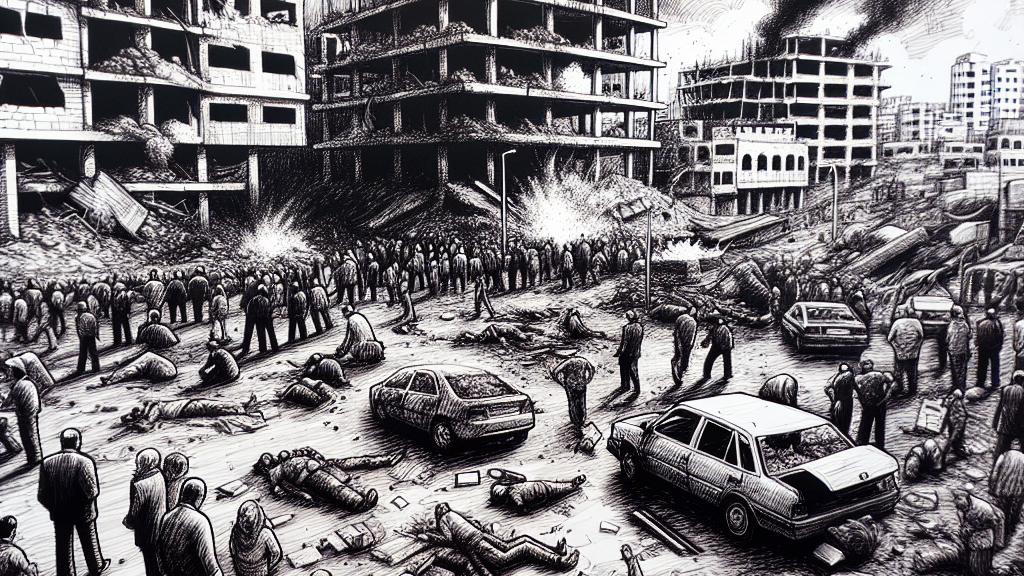Hezbollah Confirms Commander Ibrahim Mohammed Kobeissi Killed in Israeli Airstrikes
Overview
- Hezbollah's commander Ibrahim Kobeissi was killed during a precision Israeli airstrike in southern Beirut.
- The strike resulted in six fatalities and numerous injuries, igniting significant public outrage.
- In the wake of the attack, Hezbollah vows retaliation, raising alarms of escalating conflict.

The Targeted Airstrike: A Significant Moment
On September 24, 2024, an Israeli airstrike in the Ghobeiri district of Beirut marked a pivotal escalation in ongoing hostilities. This operation took the life of Ibrahim Mohammed Kobeissi, a highly regarded commander within Hezbollah's missile and rocket unit. Israeli military officials hailed the strike as a successful elimination of a key threat. Tragically, the airstrike didn't stop with Kobeissi; it resulted in the deaths of five other civilians and left over fifteen injured. The aftermath led to visible unrest among the Lebanese populace, who are increasingly frustrated with the cyclical nature of violence that has plagued the region for decades.
Hezbollah's Reaction: A Call for Retaliation
Following this devastating loss, Hezbollah quickly condemned the airstrike, labeling Kobeissi a martyr and vowing to retaliate against Israeli forces. Their statement emphasized not only Kobeissi's strategic importance but also resonated with historical echoes of resistance and defiance. As Hezbollah publicly mourns a prominent leader, the organization hints at a potentially fierce counterattack, amplifying the stakes in an already tense situation. Observers suggest Hezbollah's response could trigger a chain reaction, escalating into intense exchanges of fire, similar to previous conflicts that have drawn international attention and concern.
A Broader Context: Heightened Tensions in the Region
This incident occurs against the backdrop of rising tensions that have escalated significantly since the onset of the Gaza war in October 2023. In recent months, both Hezbollah and Israel have engaged in near-daily exchanges across the border, heightening fears of an all-out war. Following the death of Kobeissi, many analysts fear this could be the spark that ignites a broader conflict. Historical patterns suggest that retaliatory actions could lead to further attacks, destabilizing not only Lebanon but the entire region. As calls from international leaders for de-escalation grow louder, the reality on the ground remains fraught with uncertainty, leaving many to wonder if peace in the region is still a possibility.

Loading...